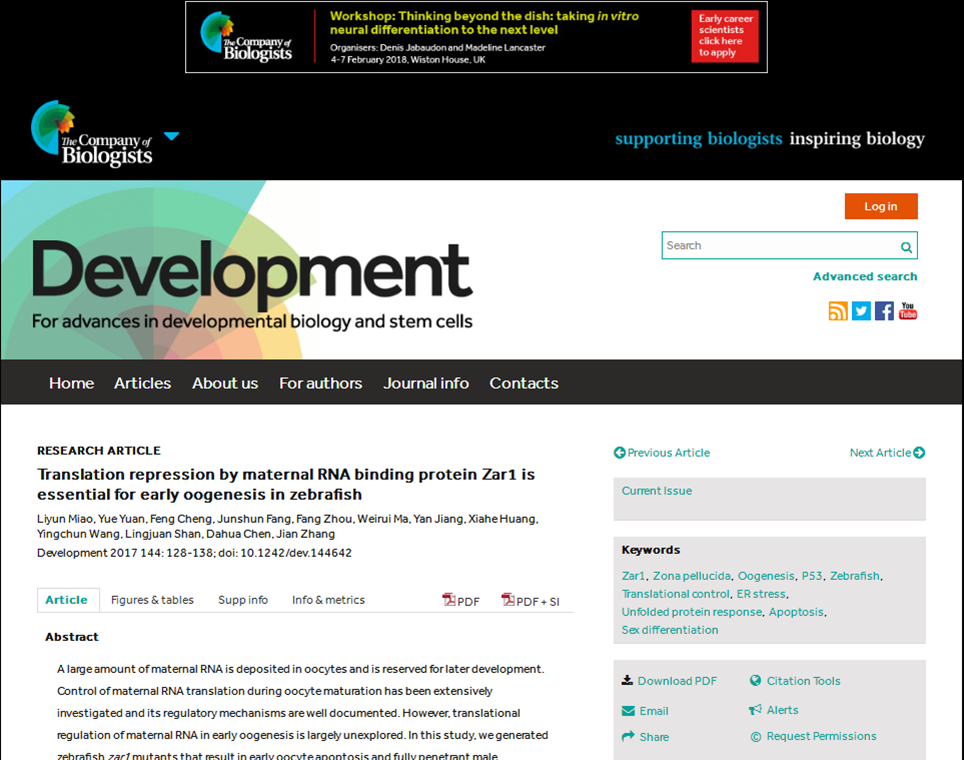Development. 2017 Jan 1;144(1):128-138. doi: 10.1242/dev.144642. Epub 2016 Dec 2.
Translation repression by maternal RNA binding protein Zar1 is essential for early oogenesis inzebrafish.
Miao L1,2,3,4, Yuan Y1,3,4, Cheng F1, Fang J1, Zhou F1, Ma W1, Jiang Y5, Huang X1, Wang Y1, Shan L1, Chen D6, Zhang J7,3,4.
Author information
1 State Key Laboratory of Molecular Developmental Biology, Institute of Genetics and Developmental Biology, Chinese Academy of Sciences, Beijing 100101, China.
2 University of Chinese Academy of Sciences, Beijing 100101, China.
3 Center for Life Sciences; School of Life Sciences, Yunnan University, Kunming 650500, China.
4 State Key Laboratory for Conservation and Utilization of Bio-Resources, Kunming 650500, China.
5 Jilin University, Changchun 130012, China.
6 Institute of Zoology, Chinese Academy of Sciences, Beijing 100101, China.
7 State Key Laboratory of Molecular Developmental Biology, Institute of Genetics and Developmental Biology, Chinese Academy of Sciences, Beijing 100101, China jianzhang84@genetics.ac.cn.
Abstract
A large amount of maternal RNA is deposited in oocytes and is reserved for later development. Control of maternal RNA translationduring oocyte maturation has been extensively investigated and its regulatory mechanisms are well documented. However, translational regulation of maternal RNA in early oogenesis is largely unexplored. In this study, we generated zebrafish zar1 mutants that result in early oocyte apoptosis and fully penetrant male development. Loss of p53 suppresses the apoptosis in zar1 mutants and restores oocyte development. zar1 immature ovaries show upregulation of proteins implicated in endoplasmic reticulum (ER) stress and the unfolded protein response (UPR). More importantly, loss of Zar1 causes marked upregulation of zona pellucida (ZP) family proteins, while overexpression of ZP proteins in oocytes causes upregulation of stress-related activating transcription factor 3 (atf3), arguing that tightly controlled translation of ZP proteins is essential for ER homeostasis during early oogenesis. Furthermore, Zar1binds to ZP gene mRNAs and represses their translation. Together, our results indicate that regulation of translational repression and de-repression are essential for precisely controlling protein expression during early oogenesis.
© 2017. Published by The Company of Biologists Ltd.



